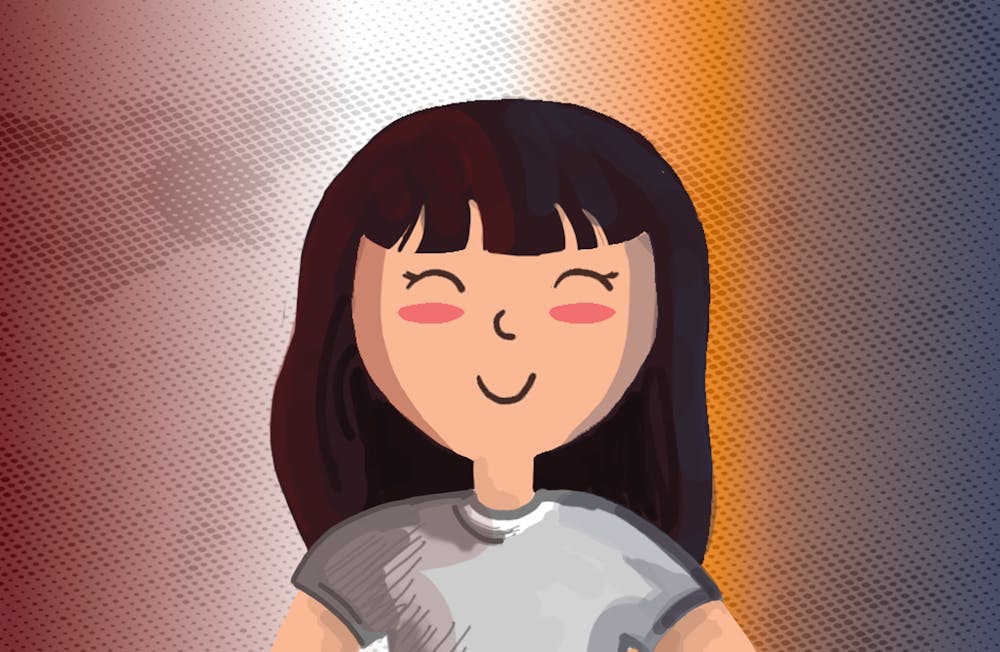“Dog-eater.”
“Ching chong.”
These were the nicknames pressed upon me throughout my formative years, and upon those who looked like me — insults that sunk into my being and remained there for years. Yet, entering the University, the hyper-awareness I had developed about having a “different” upbringing and background started to fade, and it was replaced by a stronger, more emboldened sense of belonging and pride about my culture as an Asian American.
Throughout my childhood, I was always highly cognizant of my identity and how it clearly exuded from me, with my pin-straight dark hair, short stature and stereotypically narrow eyes. In the suburban county of Pennsylvania where I grew up and specifically in the realm of classical ballet — a historically Eurocentric art form — I was clearly a minority, often the only East Asian student in ballet classes, auditions and summer intensive dance programs.
In the summer of 2021, I was invited to take part in Ballet West’s summer intensive program in Salt Lake City, Utah, and quickly learned that I was one of two East Asian students in my level out of a group of nearly 30. While I had experienced my fair share of microaggressions back home — cashiers condescendingly talking extra slowly to my parents and I, getting bowed at when I revealed my Japanese background and so on — the environment I experienced in Utah made me feel exponentially smaller in comparison.
Right off the bat, the director of the program asked whether I spoke English, and a white student pulled her eyes back in mockery of my own. It was clear that the so-called melting pot of America had yet to truly emulsify.
Perpetuated by centuries of stereotypes and society’s more recent fetishization of Asian culture, America's stereotypical concept of Japan has seemed to revolve around anime, sushi — namely, the California roll — and an air of “foreignness.” Being Japanese was weird and different, and therefore, felt shameful. As a result, throughout my childhood, I subconsciously distanced myself from my “Japaneseness” and tried my best to emulate the practices of my white peers. I selfishly begged my parents to speak English instead of Japanese while in public, and as a result, found myself distanced from a large part of what makes me “me.”
Coming into the University in the fall of 2023, I was unsure of the demographic of students — I had never deigned to check the statistics, and coming from the Northeast, my mind imagined Virginia to be as Southern as it could get.
Contrary to my fears, I’ve found myself enveloped in community and diversity here. There were several Japanese students on my dorm floor as well as in my newly-created friend groups — something I had never expected — and Asian organizations that boasted hundreds of active members. At the University, pride and joy in one’s heritage was abundant, and moreover, the openness and genuine curiosity that my white peers had in other cultures warmed my heart.
I joined the Japanese Student Association in the beginning of my first year, and this marked the first time that I was a part of a chosen family full of other students who shared my background, culture and traditions. They understood my references, experiences and tastes in food and popular culture and, even further, were celebrating it. I became deeply involved, going to karaoke nights, house parties and making actually authentic Japanese food.
This community played a large role in alleviating my homesickness that would ensue after arriving on Grounds. Due to being restricted to a mini fridge, microwave and the limited O’Hill menu, I rarely was able to experience the tastes of home. In these moments, it was my JSA “bigs” and upperclassmen family who would pack me tupperware full of rice, make hayashi rice and give me the warmth of familiarity while miles away from my parents.
It wasn’t just this one club that further deepened my comfort with my Japanese identity — it has also been the overall culture of acceptance at the University itself and the faces I see daily when walking around Grounds. I no longer sit in a classroom, a meeting or a dining hall feeling like the “other.” Instead, I have found myself mirrored in a myriad of peers, teachers and workers who model holding executive positions whilst embracing their heritage. They speak about their trips back to their home countries, openly use their different languages across Grounds and exude a love for, and pride in, their history.
To see my experiences reflected throughout so many avenues at the University is empowering. I can display my ethnicity, wave it around and feel at home — not ostracized or ashamed as I have in the past.
Yes, what I look like and my background shouldn’t be the single factor that defines me. But, it remains a large part of my character nonetheless, and I have a lot of pride in who I am and who I am becoming. Beyond the stereotypical elements of anime and sushi lie the traditions, beauty and stories that have grown with me and continue to shape me today. I find strength in each of my own facets — as an American, a University student and as a Japanese person.
This AAPISA history month, I hope to wear my identity on my sleeve, to remain proud of who I am no matter where I may be and to be a representative for everyone feeling like 15-year-old Mai.







